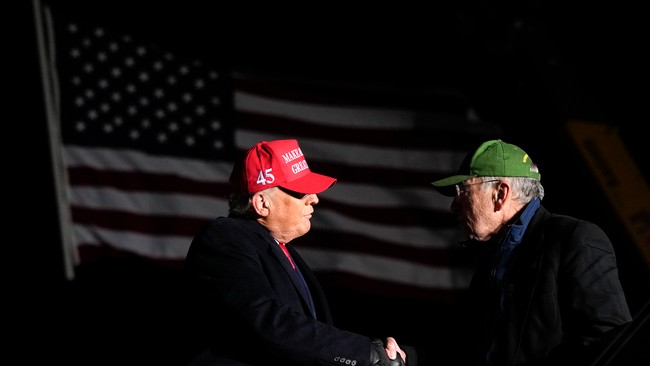
www.optimistdaily.com
Namibia’s sustainable solution to its housing crisis? Mushroom waste and weeds
BY THE OPTIMIST DAILY EDITORIAL TEAM
Namibia is experiencing a serious housing crisis, with roughly 90 percent of households unable to purchase a home. However, an innovative project, MycoHab, is offering a sustainable and promising solution by converting invasive bush and mushroom waste into eco-friendly building blocks. This effort seeks to solve both issues of housing scarcity and environmental degradation caused by the encroaching bush.
Addressing the housing crisis
Namibia, which has a population of around 2.7 million, requires at least 500,000 more new homes. A large proportion of the population, earning less than N$2,700 ($144.69) a month, lives in makeshift dwellings composed of waste materials or zinc sheets. “We wanted a new, better way to curtail the housing crisis and a sustainable way to curb the negative effects of the encroacher bush on our environment,” said Magreth Mengo, head of brand and marketing at Namibia’s Standard Bank.
Creative repurposing of encroacher bush
Encroacher bushes, which cover 45 million hectares (111 million acres) of Namibian land, have been displacing grass and other plants, harming groundwater recharge. Traditionally, these shrubs have been exploited for charcoal and timber manufacturing, considerably increasing carbon emissions. However, the MycoHab initiative provides a healthier, more natural option.
“People think the house would smell because the blocks are made of all-natural products, but it doesn’t smell,” says Kristine Haukongo, senior cultivator at MycoHab. “Sometimes, there is a small touch of wood, but otherwise it’s completely odorless.”
Mycohab’s organic solution
MycoHab grinds encroacher bushes and uses them as a substrate to produce gourmet oyster mushrooms. Once the mushrooms are harvested and sold to local retailers, the leftover waste is compressed and baked into mycoblocks, sustainable building materials. Each mycoblock contains around 10 kilograms of bush.
“If this technology becomes widespread, we could mitigate much of the more than 300 million tonnes of bush the government of Namibia wants to thin,” Haukongo told Reuters. Mycelium blocks, as opposed to traditional concrete, which accounts for four to eight percent of global CO2 emissions, store 0.8kg of CO2 equivalent per kilogram of material manufactured.
Cost-effective and eco-friendly
MycoHab predicts that housing built with mycoblocks is less expensive and needs less labor. “While these blocks are heavier compared to standard bricks, they can be erected faster, resulting in lower construction costs. To build a small house for one family, over 12 tonnes of bush would be needed,” Haukongo explained.
The project also emphasizes mycoblocks’ positive environmental impact. “MycoHab helps regenerate Namibia’s grasslands, mitigates greenhouse gas emissions, and provides food and housing – all from waste materials,” Haukongo added.
What will the future bring for MycoHab?
Despite its promise, the MycoHab initiative poses obstacles, particularly in growing operations to fulfill Namibia’s massive housing demands. Heinrich Amushila, co-director of the Shack Dwellers Federation of Namibia (SDFN), stated that while the bricks are fireproof and environmentally benign, the cost remains a concern. “The initiative is still working on buy-ins from aspiring homeowners to further fund the venture. This can pose a challenge, as prices would be relatively similar to concrete homes because, although cheaper to make, transporting Mycoblocks to the housing location is still expensive.”
To remedy this, SDFN incorporates candidates in the brickmaking and construction processes, which helps to offset the higher prices. Romeo Muyunda, spokesperson for the Namibian Ministry of Environment, Forestry, and Tourism, welcomed the initiative, stating, “We are happy that such initiatives are being made by Namibians. This being a private initiative, however, I must encourage them to make sure they are compliant with the Environmental Management Act.”
The MycoHab project, while still in its experimental phase, offers great promise. Converting invasive shrub and mushroom debris into construction materials provides a long-term solution to Namibia’s housing and environmental problems. “This project is a first of its kind and is still very much in the experimental phase but shows a lot of promise,” Mengo said.
As MycoHab grows, it has the potential to influence the architecture and construction industry to embrace more regenerative designs. With additional investment and support, this unique technique might serve as a model for sustainable housing solutions around the world, illustrating how waste materials can be recycled to produce eco-friendly and budget-friendly homes.The post Namibia’s sustainable solution to its housing crisis? Mushroom waste and weeds first appeared on The Optimist Daily: Making Solutions the News.

















